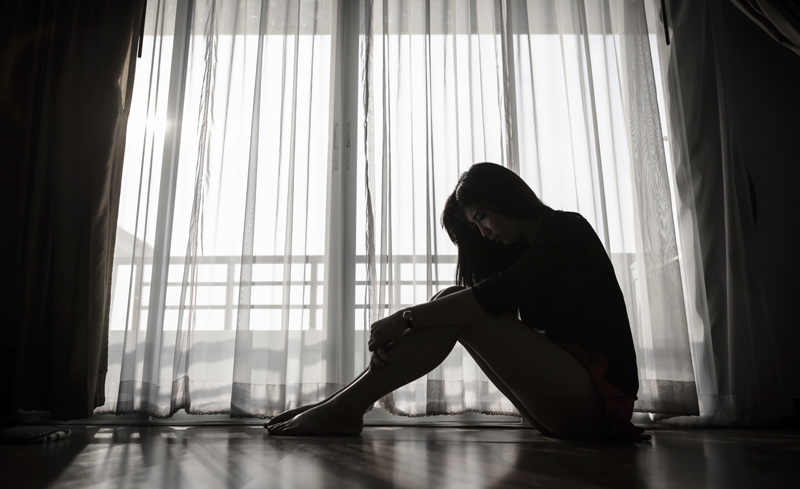
by guest bloggers Diana Zuckerman, PhD, president of the National Center for Health Research, and Brandel France de Bravo, MPH, director of communications at the National Center for Health Research
The President of the United States has expressed concern that one in five college women are being sexually assaulted. In response, pundits who have no statistical expertise are dissecting the accuracy of those numbers—instead of talking about the undisputed fact that too many college women are being sexually assaulted.
This year, 173 people in the U.S. came down with the measles, and that is being treated as an epidemic requiring urgent action. Surely, campus rape deserves at least as much public health attention.
Yet it seems that if only 1 in 7 college women are raped, or 1 in 10, or 1 in 20, then campus parties featuring date-rape drugs, gang rapes, and other types of forced sexual activity are of less concern than whether the president’s statistics are exactly correct.
We disagree with that premise. But as public health researchers, we’re taking a look at those statistics anyway.
We read the article by Christopher P. Krebs, PhD, and his colleagues, which was published in a peer-reviewed journal and based on a study funded by the National Institute of Justice, to find out more about the “1 in 5” statistic. Then we called Dr. Krebs to find out more.
Dr. Krebs and his colleagues studied more than 5,000 women at two large public universities. They found that one in five of the seniors said they had been sexually assaulted at some point during college.
Critics have pointed out that the definition of sexual assault includes unwanted kissing and sexual touching, and there is debate about whether those behaviors are serious or just “boys will be boys” behaviors. But the statistics speak for themselves: Most of the women who reported experiencing unwanted, nonconsensual sexual contact in an anonymous survey had experienced rape—oral, vaginal, or anal—not just other types of unwanted touching.
About 1 in 7 female seniors (15 percent) reported being raped since entering college. Those rapes happened because the women were either physically forced or threatened, or because they were incapacitated and unable to give consent. Of the students who had been raped during college while incapacitated, a substantial minority said they had definitely or probably been given a date-rape drug without their knowledge.
Although Dr. Krebs and his colleagues never claimed that the study was representative of all colleges in the U.S., other studies conducted at colleges and universities across the country have yielded similar statistics. A 2004 study done by Harvard faculty at 119 colleges nationwide found 1 in 20 of the 24,000 women had been raped during that school year (in the previous seven months). Over the course of four years, that would likely be similar to 1 in 7, since the likelihood of being raped tends to be higher for younger college women.
The White House didn’t just quote Dr. Krebs’ research; White House staff talked to him to make sure they understood how the study was done and how it should be interpreted. “We all realize that more research is needed,” Dr. Krebs told us. “I’m in the process of working on a larger study, but the first step is to make sure that we are asking the right questions and asking them in the right way.” The team will survey approximately 20,000 undergraduate women and men at 10 schools that differ in size and geography, including public and private schools and two-year and four-year schools.
We are glad that a more comprehensive study is being planned, but clearly better data are not the answer. Whether the most accurate statistics of campus rape are 1 in 5, 1 in 7, or 1 in 20, remember that there are about 10 million women who are attending colleges in the U.S. Even 1 in 20 would mean 500,000 women who have been or will be raped before they graduate. Campus rape and other types of sexual assault are a huge problem for colleges and an enormous tragedy. Most colleges have done a terrible job of preventing them or ensuring justice for the students involved.
Too much media attention has been focused on individual victims, but the “he said/she said journalism” is missing the point. And so is the punditry challenging the exact statistics.
If any other traumatic event affected ½ million college students, we would be focused on finding a systemic solution. It’s long past time to do that to prevent campus rapes and bring justice to those involved.
 Diana Zuckerman is the president of the National Center for Health Research. She received her doctorate from Ohio State University and was a postdoctoral fellow in epidemiology and public health at Yale Medical School. After serving on the faculty of Vassar and Yale and as a researcher at Harvard, Dr. Zuckerman spent a dozen years as a health policy expert in the U.S. Congress and a senior policy adviser in the Clinton White House. She is the author of five books, several book chapters, and dozens of articles in medical and academic journals, newspapers, and websites.
Diana Zuckerman is the president of the National Center for Health Research. She received her doctorate from Ohio State University and was a postdoctoral fellow in epidemiology and public health at Yale Medical School. After serving on the faculty of Vassar and Yale and as a researcher at Harvard, Dr. Zuckerman spent a dozen years as a health policy expert in the U.S. Congress and a senior policy adviser in the Clinton White House. She is the author of five books, several book chapters, and dozens of articles in medical and academic journals, newspapers, and websites.

Brandel France de Bravo is the director of communications at the National Center for Health Research. She holds a master’s in public health from Columbia University and an MFA in creative writing. She has worked on a wide range of health and safety issues, including HIV prevention and the health and safety of women and children. She is coauthor of two parenting books and the author of two books of poetry.




I wonder if it were the college football team who were being sexually abused would they be much more eager to stop the abuse? Even if the men were not being sexually abused, if they were being physically or mentally abused, would the colleges immediately take actions to stop this from happening?? Why is it that it’s “ok” for women to be abused in our world?? We need to shout out that it is NOT ok, and those in charge need to stand up and take the right action now!!
This study was done on seniors. They also need to consider how many women were assaulted in their first year and then dropped out. I bet that would raise the numbers significantly.
Most women know that they will be treated really badly should they ‘report’ rape. Nowadays the media tears that woman to shreds before a trial. Why do we think the BIG stories turn out to be ‘false’? I don’t actually.
I just think anyone can be made to look wrong in these horrible situations. Women get very little respect even in our ‘modern’ society.
Legislators want to control our bodies – is it any wonder that young men get that same message?
(I have been a member of the National Organization for Women from the day they accepted members).
Thank you for posting this article. I’m am the mom of a current college student, the college she attends has a terrible reputation when it comes to the investigation process. Most cases have gone to the side of the rapist, and investigations are considered a joke. Victim paper work is lost and investigations closed prior to being finished. They have even been known to house the victim and rapist in the same building after investigations with out alerting the victim, this is a concern. They have allowed the rapist to sit behind his victim in class when he was not a student in that class, during the investigational process, intimidation I think so but they say there is nothing they can do. Sexual assault needs to be taken more seriously in colleges and parents need to know the questions to ask prior to allowing their daughters to attend. Many victims of assault leave school or transfer, but the rapist is allowed to walk free with out the need to look behind them always in fear.
The problem is when people use the 1/5 or 1/3 numbers to call for radical solutions such as the university courts, lowering the standard needed for evidence, calling for a presumption of guilt of the male, preemptive teach men not to rape courses, etc etc. It is fear mongering. 1/1000 would be far too many. (Isnt it 6.1/1000) This is what instills the idea that women are weak or liars.